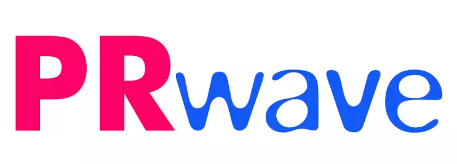The right to privacy and freedom of information are two fundamental civil rights recognised in international law and in constitutions of multiple countries around he world. Nevertheless in the digital age, the fight for these fundamental rights is taking a new turn. The internet was devised as a tool to provide free access to information, facilitate freedom of speech, and empower you to configure your own privacy. Of course, it never lived up to the idealistic vision.
When choosing your VPN provider, emphasise on the three advantages it can bring you and decide what what should be your VPN’s priority: protect your online privacy, ensure your online security, or provide you with freedom of information. NordVPN review shows how this provider sets a baseline for what technical specifications you must expect in a quality VPN.
While some VPN providers prioritise privacy, others focus on securing your internet usage. Both are important, but often an affordable VPN service will mean one will be enhanced at the expense of the other.

photo source
1. Privacy and anonymity
Privacy and anonymity on the web are compromised on a daily basis. High-profile revelations like NSA surveillance are just tip of the iceberg, but government surveillance is one of the pervasive problems in modern world. Established intelligence sharing agreements (like the Five Eyes) make it easier for governments to access information not only on their own citizens, but on foreign citizens as well. Few countries offer sufficient safeguards and transparent procedures preventing law enforcement and intelligence services from requesting your private data from the ISP without serous probable cause or proof of involvement in a serious crime.
Using a virtual private network means protecting your internet traffic from the prying eyes of your Internet service provider. This includes not only your browsing history, but also all of your communication data and your IP address. VPN provides end-to-end encryption of your communications so that even intercepted by unauthorised third parties they cannot be accessed.
VPN masks your real IP address and provides you with a spoofed one that cannot be traced back to you by your ISP. Well, in theory. Privacy oriented VPN providers often advertise their no-logs policy, meaning that they do not keep any data or metadata about how you use the service. Nevertheless, some VPN providers with ’no logging’ policy have been caught in the past for keeping quite a bit of user data, including real IP addresses, timestamps of VPN access, and more. While so far such cases only concerned serious crimes, where the law enforcement requested access to user data under judicial order, it has called into question the value of user data for VPN providers (do they sell it to advertisers?) If privacy is your primary concern when choosing a VPN provider, make sure you read into the logging policy (including small print).
Then there is tech companies for whom your personal data bears significant economic value. Personal data and metadata collected on you by search engines, email provider, social media platforms, messaging services, online shopping sites – gets purchased and sold to advertisers that refine their product delivery according to your digital profile, which is intrusive and annoying at the very least, but mostly just outright creepy. Protecting yourself from tracking by your ISP, by Google, Facebook (and just about every site on the internet) is one good reason to install a VPN. Using a virtual private network means providing misleading information about your location, hiding your browsing history, and ensuring that your metadata belong only to you.
2. Security
Security online should not be taken lightly in the modern world. We access online services not just from the (presumably) home networks, but from public WiFi (in hotels, cafés, urban spaces), where our devices are vulnerable to attacks by third parties. When exchanging sensitive data online, such as entering your banking credentials, submitting your government ID or medical information, or conducting correspondence of confidential nature (especially in line of work like legal services or journalism), using a VPN is essential to prevent these data from being stolen and then leaked online or sold to unauthorised parties.
3. Freedom of information
Internet shutdowns are not a problem in the Western world, but they remain a serious concern in several countries in Africa, Asia, and the Middle East. As a way to prevent people from exercising their freedom of assembly, freedom to discuss and debate the political establishment, and freedom to obtain information, authoritarian regimes censor social media platforms, news and open knowledge sources (like Wikipedia or certain publications), or shut down access to the internet altogether in times of public unrest.
Bypassing censorship and obtaining access to information is an important reason for many users worldwide to subscribe to VPN services. VPN opens a gateway to the free and open internet, despite the attempts of several countries to block certain domains on political grounds, due to copyright law, or simply to restrict access to certain type of information to the citizens.



